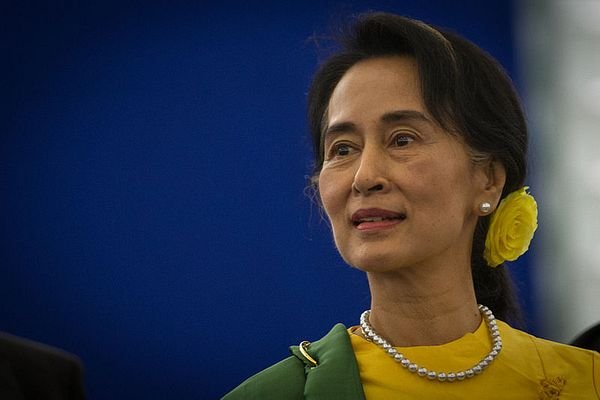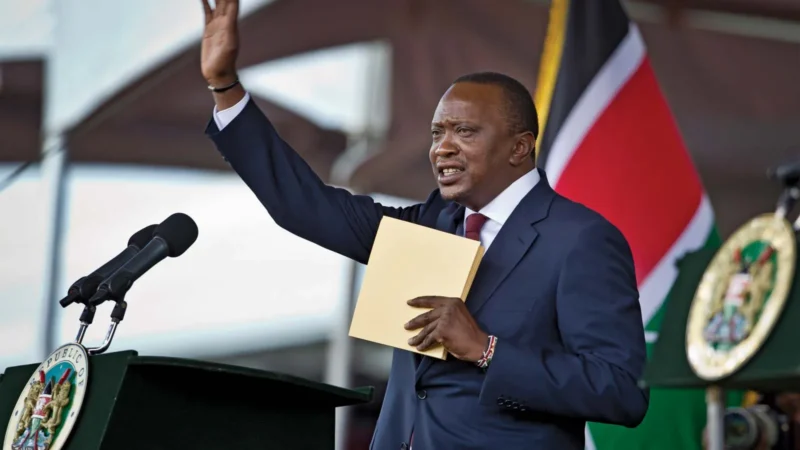Cases, Controversies, and Allegations on Aung San Suu Kyi
Aung San Suu Kyi, a Nobel Peace Prize laureate and prominent political figure, has played a pivotal role in Myanmar’s struggle for democracy.

In this blog post, we will explore the life, political journey, and controversies surrounding Aung San Suu Kyi. Additionally, we will uncover 10 lesser-known facts about her, estimate her net worth, and provide answers to the five most searched questions about her leadership. Join us as we delve into the inspiring and challenging aspects of Aung San Suu Kyi’s life and her impact on Myanmar.
Background and Political Journey:
- Early Life: Aung San Suu Kyi was born on June 19, 1945, in Yangon, Myanmar (formerly Burma). She is the daughter of Aung San, the father of Burmese independence.
- Education and Activism: Suu Kyi studied abroad and later settled in the United Kingdom, where she worked as an academic and became politically active in promoting democracy in Myanmar.
- Founding the National League for Democracy (NLD): In 1988, Suu Kyi returned to Myanmar after years abroad and became a prominent figure in the pro-democracy movement. She founded the NLD, a political party advocating for democratic reforms.
- House Arrest and Political Struggles: Suu Kyi faced house arrest and detention for a significant part of her political career, enduring years of isolation and restrictions placed by the military junta.
- Leadership and Elections: Suu Kyi’s perseverance paid off when the NLD won a landslide victory in Myanmar’s 2015 general elections, leading to her becoming the State Counsellor, the de facto leader of Myanmar.
UnKnown Facts About Aung San Suu Kyi:
- Despite her international prominence, Aung San Suu Kyi is known for her modest and simple lifestyle.
- She draws inspiration from the philosophy of nonviolent resistance, as espoused by figures such as Mahatma Gandhi and Martin Luther King Jr.
- Aung San Suu Kyi is an accomplished writer and author, with her works reflecting her beliefs and experiences in the struggle for democracy.
- She has received numerous international awards and honors, including the Nobel Peace Prize in 1991 for her nonviolent struggle for democracy and human rights in Myanmar.
- Suu Kyi has faced criticism and controversy for her perceived inaction or lack of intervention in the Rohingya crisis, a humanitarian and ethnic conflict in Myanmar.
- She has been a vocal advocate for national reconciliation, ethnic harmony, and constitutional reforms to ensure a more inclusive and democratic Myanmar.
- Aung San Suu Kyi’s political career has been marked by a delicate balancing act, as she navigates the challenges of Myanmar’s military influence and the expectations of the international community.
- She has been a symbol of hope and inspiration for the people of Myanmar, who see her as a beacon of democracy and an advocate for their rights.
- Suu Kyi has engaged in diplomatic efforts to build relationships with other countries and promote Myanmar’s interests on the international stage.
- Despite the challenges and controversies surrounding her leadership, Aung San Suu Kyi continues to command respect and support from a significant portion of Myanmar’s population.
Estimated Net Worth of Aung San Suu Kyi:
Estimating Aung San Suu Kyi’s net worth is challenging due to limited financial disclosures. As a public servant and pro-democracy advocate, her primary source of income has been her salary and earnings from her writings. However, specific details about her personal assets and net worth are not publicly available.
Q: What role did Aung San Suu Kyi play in Myanmar’s pro-democracy movement?
A: Aung San Suu Kyi played a central role in Myanmar’s pro-democracy movement as a leader, founder of the NLD, and an advocate for democratic reforms.
Q: What led to Aung San Suu Kyi’s house arrest and detention?
A: Aung San Suu Kyi’s house arrest and detention were primarily a result of her activism and vocal opposition to the military junta’s rule in Myanmar.
Q: How has Aung San Suu Kyi addressed ethnic conflicts in Myanmar?
A: Aung San Suu Kyi has sought national reconciliation and advocated for ethnic harmony in Myanmar, although the challenges of addressing ethnic conflicts remain complex.
Q: What is the controversy surrounding Aung San Suu Kyi’s stance on the Rohingya crisis?
A: Aung San Suu Kyi has faced criticism for her perceived inaction or lack of intervention in the Rohingya crisis, leading to allegations of human rights violations and ethnic cleansing.
Q: How has Aung San Suu Kyi’s leadership impacted Myanmar’s democracy?
A: Aung San Suu Kyi’s leadership has brought significant changes to Myanmar’s political landscape, including a transition toward a more democratic system. However, her tenure has been marked by both progress and challenges.
Conclusion: Aung San Suu Kyi’s unwavering commitment to democracy and her role in Myanmar’s pro-democracy movement have earned her international recognition and respect. Her life and political journey have been shaped by sacrifices, challenges, and controversies. As Myanmar continues to navigate its path toward democracy, Aung San Suu Kyi’s legacy remains complex and subject to ongoing discussions and assessments.



